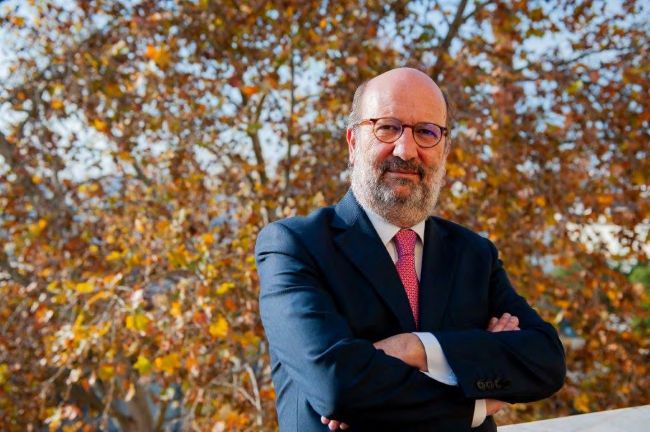The way into the future
The semester of the Portuguese Presidency of the European Union is based on five strategic pillars: a more resilient Europe, prepared to face crisis situations; a more socially responsible and solidarity-based Europe that cares for all, especially the most vulnerable; a green Europe moving towards climate neutrality; a more digital Europe that invests in innovation and is guided by ethical principles; and a global Europe sustained by multilateralism and international partnerships for the common good.
These five areas are aligned with the European Green Deal, but above all they are aligned with the future we want for Portugal and for the Portuguese people.
It is time to act.
Portugal was the first country to commit to carbon-neutrality by 2050, at the 22nd Conference of the Parties in Marrakech.
Our political guidance was structured by a long-term vision, but with immediate action, around three interconnected axes: the promotion of the territory and its habitats, the circular economy and the decarbonisation of society, and the energy transition; their ultimate goal is the creation of well-being and wealth.
The long-term vision emphasises the territorial dimension in all strategic documents, mirrored in the national programme for land use planning policies, the guidelines of the action plan for the circular economy, and the landscape transformation programme aimed at the vulnerable forest territories most affected by fires.
The target set by Portugal to achieve carbon neutrality implies reducing greenhouse gas emissions by more than 85 % in comparison with 2005 and ensuring a capacity for agricultural and forestry carbon sequestration of the order of 13 million tonnes. As Portugal is one of the countries potentially most affected by climate change, ensuring sustainable and resilient agriculture and forestry and combating desertification are the greatest challenges that we face. However, these challenges are also an opportunity to build the foundations of a 'new economy'.
We have the privilege of being part of a historical moment of transition between a linear economic model and a circular model, when consumption behaviour is changing. This involves a profound transformation of society as we know it.
The work developed with ESPON - European Territorial Observation Network during the Portuguese Presidency on the long-term vision for rural areas reinforces the scientific evidence on the positive impacts of a public policy framework anchored in the territory.

João Pedro Matos Fernandes is the Minister for the Environment and Climate Action of Portugal
The territory must be at the centre of public policies. We cannot continue to produce sectoral policies as if the territory were just a homeland where phenomena happen, but rather we must perceive the territory as an agent of transformation. We must also know how to make the most of the territory, and be aware of its limits.
Experience has shown that, whenever we apply knowledge and innovation to processes and interventions, we gain in employment, social and territorial cohesion. We also gain in social justice and biodiversity. Overall, we gain in the balance between the well-being of our collective life and the enhancement of territorial values.
This is a process that involves challenges and, above all, opportunities, and only with everyone's contribution will it be possible to make this transition in a fair and cohesive way. We have no time to hesitate. This is the way into the future. The future is today.